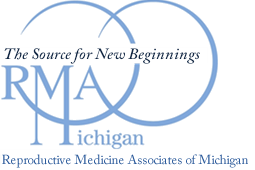I am often asked if there are lifestyle modifications that can be made to improve fertility outcomes. Fertility diet and nutrition is one specific area of interest for many patients. While it is hard to study “the perfect diet” to improve fertility, some studies have attempted to answer this question.
The largest study of 17,544 women found that based on the dietary intake and reproductive outcomes of these women, a high fertility diet consists of:
- Low intake of trans-fat, with a simultaneous greater intake of monounsaturated fat
- Low intake of animal protein with greater vegetable protein intake
- High intake of high-fiber, low glycemic carbohydrates
- Greater preference for high-fat dairy products
- High non-heme iron intake (mostly found in plant foods)
The women who adhered to this type of diet had a 66% lower risk of ovulatory disorder infertility and a 27% lower risk of infertility due to other causes.
Soy may also help female fertility because soy contains isoflavones that bind to the estrogen receptor and have mild estrogenic activity. In one study the odds ratios of life births were highest in women consuming 2.64-27.89 mg/day. For reference, a 3oz serving of tofu has 20mg isoflavones. Other foods that contain phytoestrogens include walnuts, soybeans, cereals (oats, barley, wheat, and rice), legumes, berries, apples, carrots, ginseng, fennel, and anise used to make bourbon and beer.
What should I eat before IVF treatment?
The easiest answer is to maintain a well-balanced diet. Everyone has different needs, and it is very difficult to do a study selecting for one food item. There is no specific recommended IVF diet, although the Mediterranean Diet is likely the closest we can get to an ideal diet. Here is a is a suggested list of dietary suggestions:
Increase monosaturated fats (ie. Olive oil, sunflower oil, nuts, seeds, and avocados)
Limit saturated fats (butter, raw meat)
Limit coffee intake to no more than 200mg a day (2-3 cups)
Focus on protein (at least 60 grams of protein daily, see list below), limit carbohydrates (but you still need some! Good choices are whole grains, fruits, honey)
Avoid alcohol consumption, but if you must- limit it to less than 4 drinks per week
Try to buy organic food which is free of chemicals that may act as endocrine disruptors
What about your partner?
In men, semen parameters may be improved by diets consisting of limited processed meats and cheese, and by increased low-fat dairy and fish. Again, a Mediterranean Diet tends to be as close to ideal as we can get. Unlike women, soy may be detrimental for men as the mild estrogenic activity may affect spermatogenesis and lower testosterone levels. If you have other questions about fertility nutrition or how diet may impact your natural fertility, please schedule a consultation. Or you can read my article, ‘The Impact of Lifestyle Modifications, Diet, and Vitamin Supplementation on Natural Fertility.’
PROTEIN IN FOOD
- Milk, 1 cup (8 grams)
- Yogurt, 1 cup (8 grams)
- Meat, Poultry, Fish 1 ounce (7 grams)
- Cheese, 7 ounces (7 grams)
- Bread, 1 slice (3 grams)
- Potato, ½ cup (3 grams)
- Green peas, ½ cup (3 grams)
- Beans (red, kidney) 1/3 cup cooked (3 grams)
- Pasta, ½ cup (3 grams)
- Cereal, ¾ cup (3 grams)
- Vegetables, ½ cup cooked or 1 cup raw (2 grams)
- Fruit (0 grams)
- Fat, Oil, Margarine (0 grams)
- Peanut Butter, 2 tablespoons (7 grams)
- Tofu, ¼ cups or 4 ounces (8-13 grams)
- Cottage cheese, ½ cup (14 grams)
- Tahini Pasta, 2 tablespoons (6 grams)
- Mixed nuts, 1 ounce (6 grams)
- Frozen Yogurt, 4 ounces (4 grams)
- Egg, 1 large (6 grams)
- Egg substitute, ¼ cup (5-6 grams)
- Sunflower seeds, 1 ounce (6-7 grams)
- Soy Milk, 8 ounces (6.5 grams)
- Chicken, 3 ounces (21 grams)



